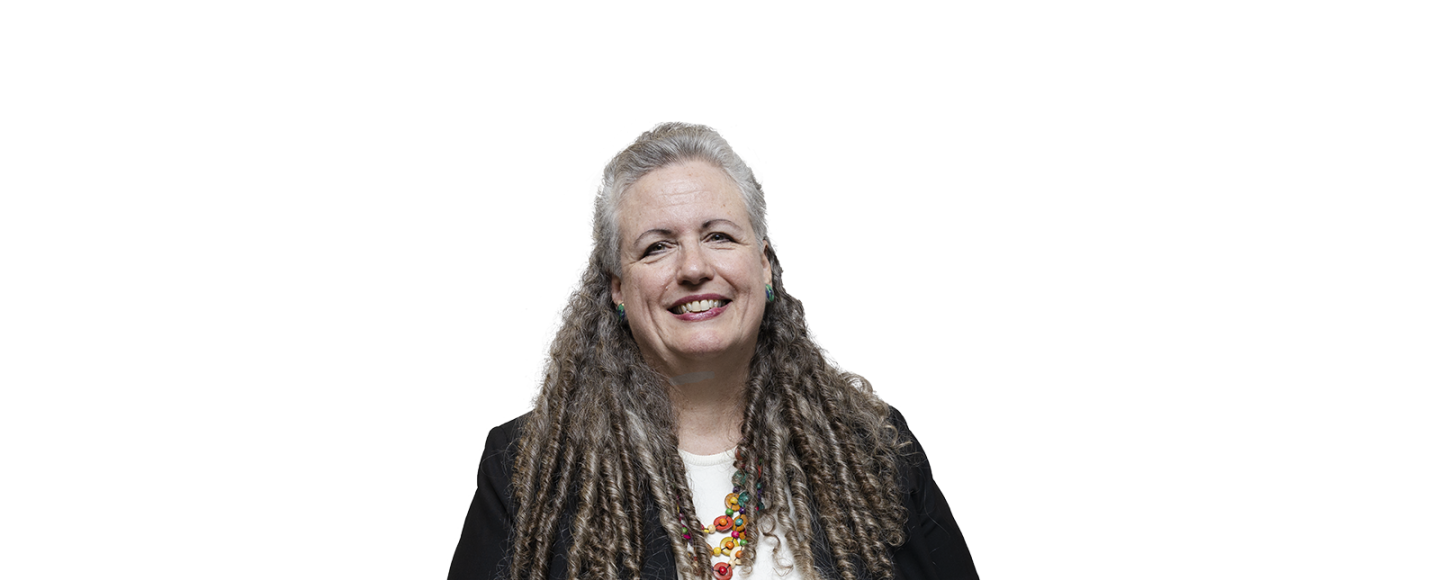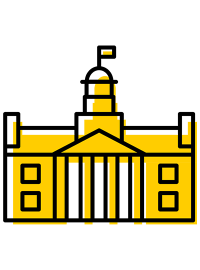Table of ContentsClose

As a distinguished innovator in biochemistry education, Madeline Shea, PhD, has recruited and mentored a diverse group of undergraduate, graduate, and medical students in the classroom and in her lab.
Shea, a professor in the Carver College of Medicine Department of Biochemistry and Molecular Biology, introduced electronic classrooms with data analysis and simulations into the graduate biophysical chemistry curriculum, and she recently created a course to develop critical-thinking skills for undergraduate biochemistry majors.
Her commitment to engaging and guiding students is complemented by a lengthy list of accolades, including the 2020 President and Provost Awards for Teaching Excellence—the top University of Iowa teaching award—the Carver College of Medicine Teaching Award in 2020, and the Emily M. Gray Award for Contributions to Education from the Biophysical Society in 2018.
Shea founded and directs the Fostering Undergraduate Talent – Uniting Research and Education (FUTURE) in Biomedicine program, which brings faculty and students from primarily undergraduate institutions (PUIs) in Iowa to conduct mentored research in the Carver College of Medicine.
Medicine Iowa recently spoke with Shea about her teaching career.
One reason I joined a university rather than a research institute is because I wanted to share the joy of science broadly, not just with specialists. A democracy depends on people being aware of the grueling process and the joy of discovering new knowledge, testing it, realizing that sometimes it's hard to get to the answers, and sometimes the answers change in ways that we didn't anticipate. New understanding develops as we reject models—it’s not handed to us as facts.
Social justice is also a great motivator for me. I saw a lot of science courses taught in a way that only hit the mark for students who looked and sounded like the instructor, and who had the privilege of being exposed to the vocabulary early. I aspired to reach prospective students where they were, even if they had never considered my field as a major or a career. I try to be inclusive and accommodate neurodiversity. Great discoveries have been made by people who don’t fit the mold or have nontraditional viewpoints.
Those values helped me bring out the best in classes and trainees. We waste a lot of human potential in our country if we alienate people by making them feel unworthy or unwelcome.
I certainly hope my teaching style is always clear, forthright. I communicate a lot, but I also prioritize learning objectives and prefer to go through selected topics rather than over everything.
I want to encourage and never shame a student. I want them to develop the mindset that they can get better. Whatever their best is today, it can improve. They're not all going to grow up to get a Nobel Prize, but they can almost always improve if they engage. When you give people hope that they can master material and offer specific suggestions for studying, that is often more effective than telling them the answer to question seven.
I've always been eager to bring students into my lab early. They often start when they're 17 or 18. I believe that curiosity, a strong work ethic, and integrity are much more important than prior knowledge. When people get excited, they're willing to read books and articles and try to learn things independently. They see a future in it for themselves.
I've mentored students in my lab who were majoring in business, English, and music. So, I believe we shouldn't take the labels too seriously but, rather, give people a chance. I stay in touch with many, and often they tell me that the lessons that stuck were philosophical or strategic: how to strategize when approaching a problem, how to organize data, or even how to manage a team.
We wanted to develop ongoing research collaborations with PUIs by bringing innovative scientist-educators to Iowa City for a summer to participate in our research, learn about our training opportunities, and swap best practices in pedagogy. I hoped they would be impressed by our programs and labs, and be excited to recommend their best students to us. The fellows are eager to advance their research and update their education via intellectual collaborations and by using our state-of-the-art resources—we have million-dollar instruments that their schools may not.
It’s been a success on many levels. Our researchers and their PUI collaborators have jointly written scientific articles and grant applications that include the student researchers. Each summer, many talented undergraduates are mentored. They go back to their campuses excited to help with ongoing collaborations and encourage their peers to apply to our programs.
It’s a two-way street. Several UI graduate students and postdocs have been mentored by FUTURE faculty fellows, through shadowing experiences or guided teaching at their colleges. That helped them assess their fit for that career path.
It's been a lot of fun, and has promoted an intra-Iowa network of scientist-educators that I did not anticipate when we started. The program has hosted 60 faculty fellows from 22 colleges. More than half of the fellows have maintained ongoing collaborations.

Growing research collaborations across the state
The FUTURE in Biomedicine program opens University of Iowa laboratories to Iowa college professors and their undergraduates.
